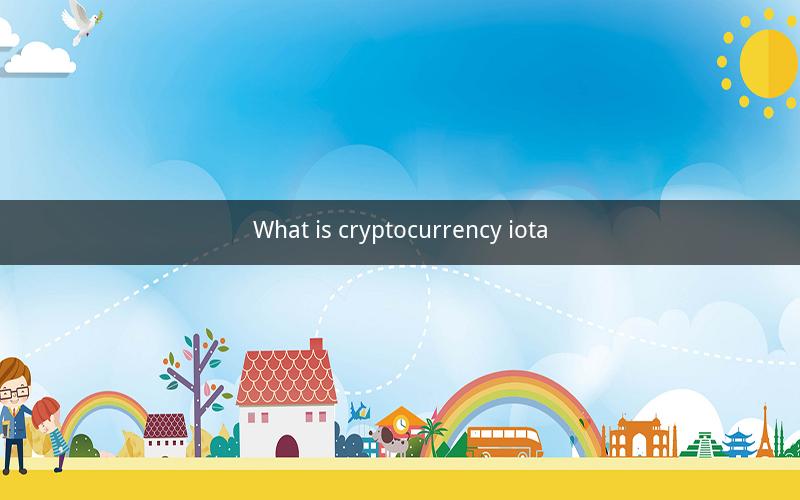
What is Cryptocurrency IOTA?
Table of Contents
1. Introduction to Cryptocurrency IOTA
2. History of IOTA
3. The IOTA Tangle
4. IOTA's Unique Features
5. How IOTA Works
6. Use Cases of IOTA
7. Advantages and Disadvantages of IOTA
8. IOTA's Future Prospects
9. Conclusion
1. Introduction to Cryptocurrency IOTA
Cryptocurrency IOTA, often abbreviated as MIOTA, is a digital currency that aims to revolutionize the way transactions are conducted, particularly in the realm of the Internet of Things (IoT). Unlike traditional cryptocurrencies like Bitcoin and Ethereum, IOTA utilizes a unique technology called the Tangle, which eliminates the need for miners and reduces transaction fees.
2. History of IOTA
IOTA was founded in 2015 by David Sonstebo, Dominik Schiener, and Serguei Popov. The project was initially intended to facilitate microtransactions in the IoT ecosystem. In 2016, IOTA's whitepaper was published, outlining its innovative Tangle technology. Since then, IOTA has gained significant attention and has become one of the most popular cryptocurrencies in the market.
3. The IOTA Tangle
The IOTA Tangle is a decentralized, peer-to-peer network that facilitates transactions without the need for miners. Instead of a traditional blockchain, the Tangle uses a directed acyclic graph (DAG) structure. This structure allows for faster and more cost-effective transactions, as each transaction validates two previous transactions, forming a web-like structure.
4. IOTA's Unique Features
IOTA offers several unique features that set it apart from other cryptocurrencies:
- No Fees: Due to the Tangle's structure, IOTA transactions are free, eliminating the need for miners and reducing network congestion.
- Microtransactions: IOTA is designed to handle micropayments, making it ideal for the IoT ecosystem, where numerous small transactions occur.
- Scalability: The Tangle's structure allows for infinite scalability, as the more nodes join the network, the more efficient it becomes.
- Anonymity: IOTA does not require a public address for transactions, providing users with a higher level of privacy.
5. How IOTA Works
IOTA operates by utilizing the Tangle, which is a network of interconnected nodes. When a user wants to make a transaction, they must validate two previous transactions in the Tangle. This validation process ensures that the network remains secure and decentralized. Once the transaction is validated, it becomes a part of the Tangle and is confirmed.
6. Use Cases of IOTA
IOTA has various applications in the IoT ecosystem, including:
- Smart Cities: IOTA can facilitate efficient energy management and traffic control in smart cities.
- Healthcare: IOTA can be used to track medical devices and ensure patient data privacy.
- Supply Chain: IOTA can provide real-time tracking of goods and prevent counterfeiting.
- Renewable Energy: IOTA can enable peer-to-peer energy trading and incentivize renewable energy production.
7. Advantages and Disadvantages of IOTA
Advantages:
- No Fees: IOTA transactions are free, making it cost-effective for users.
- Scalability: The Tangle's structure allows for infinite scalability.
- Anonymity: IOTA provides users with a higher level of privacy.
Disadvantages:
- Lack of Mining: Without miners, IOTA's network security may be compromised.
- Market Volatility: Like other cryptocurrencies, IOTA's value is subject to market fluctuations.
8. IOTA's Future Prospects
IOTA's future prospects are promising, as the technology has the potential to revolutionize the IoT ecosystem. With increasing adoption and partnerships, IOTA could become a significant player in the cryptocurrency market. However, challenges such as regulatory concerns and market competition must be addressed to ensure its long-term success.
9. Conclusion
Cryptocurrency IOTA is a unique digital currency that aims to revolutionize the way transactions are conducted in the IoT ecosystem. With its innovative Tangle technology, IOTA offers several advantages, such as free transactions, scalability, and anonymity. However, challenges such as network security and market competition must be addressed for its long-term success.
FAQs
1. What is the difference between IOTA and Bitcoin?
2. Can IOTA be used for large-scale transactions?
3. Is IOTA's Tangle technology secure?
4. How does IOTA ensure user privacy?
5. What are the main use cases of IOTA?
6. Can IOTA be used for energy trading?
7. How does IOTA's Tangle compare to blockchain technology?
8. Is IOTA's market value stable?
9. What are the potential challenges for IOTA's future growth?
10. How can I purchase IOTA?